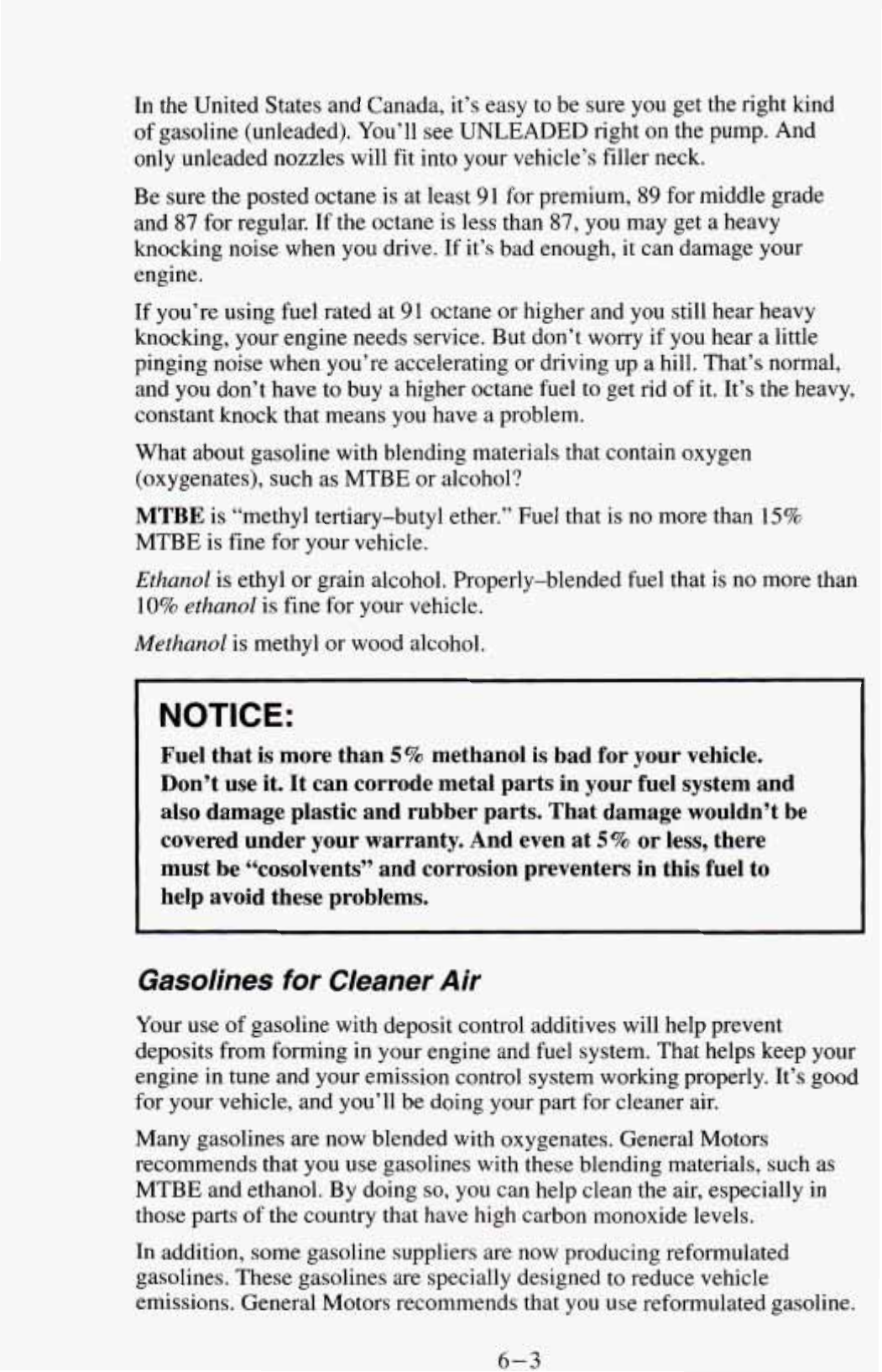
In
the United States and Canada, it’s easy to be sure
you
get the right kind
of
gasoline (unleaded). You’ll
see
UNLEADED
right on the pump. And
only
unleaded nozzles will fit into your vehicle’s filler neck.
Be sure the posted octane is at least
9
1 for premium, 89 for middle grade
and 87 for regular. If the octane is less than 87, you may get a heavy
knocking noise when you drive. If it’s bad enough, it can damage your
engine.
If you’re using fuel rated at 91 octane or higher and you still hear heavy
knocking, your engine needs service. But don’t worry if
you
hear a little
pinging noise when you’re accelerating or driving up a hill. That’s normal,
and you don’t have to buy a higher octane fuel to get rid
of
it. It’s the heavy,
constant knock that means
you
have a problem.
What about gasoline with blending materials that contain oxygen
(oxygenates), such as MTBE or alcohol?
MTBE
is “methyl tertiary-butyl ether.” Fuel that is
no
more than 15%
MTBE is fine for your vehicle.
Ethanol
is ethyl or grain alcohol. Properly-blended fuel that is
no
more than
10%
ethanol
is fine for your vehicle.
Methanol
is methyl or wood alcohol.
NOTICE:
Fuel that is more than
5%
methanol is bad for your vehicle.
Don’t
use
it. It can corrode metal parts in your fuel system and
also damage plastic and rubber parts. That damage wouldn’t be
covered under your warranty. And even at
5%
or less, there
must be “cosolvents” and corrosion preventers in this fuel to
help avoid these problems.
Gasolines for Cleaner Air
Your use of gasoline with deposit control additives will help prevent
deposits from forming in your engine and fuel system. That helps keep your
engine in tune and your emission control system working properly. It’s
good
for your vehicle, and you’ll be doing your part for cleaner air.
Many gasolines are now blended with oxygenates. General Motors
recommends that
you
use gasolines with these blending materials, such as
MTBE
and ethanol. By doing
so,
you can help clean the air, especially in
those parts of the country that have high carbon monoxide levels.
In
addition, some gasoline suppliers are
now
producing reformulated
gasolines. These gasolines are specially designed to reduce vehicle
emissions. General Motors recommends that
you
use reformulated gasoline.
6-3


















